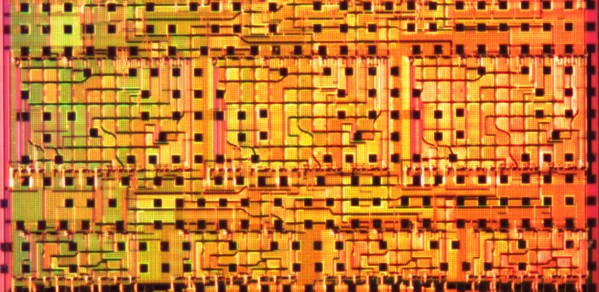
Researchers from the Department of Engineering have started work on a £6.1m UKRI-EPSRC programme grant to transform the way data is communicated and processed on silicon chips.
We are pleased to be a partner in the QUDOS project which will carry out ground-breaking research to develop the next generation of silicon chips, enabling integrated optical communications and processing to enhance their performance and energy efficiency.
Professor Richard Penty, Head of the Centre for Photonic Systems
Working with colleagues from UCL, Southampton and Cardiff Universities, the scientists aim to create circuits where quantum dot laser sources are integrated on a single piece of silicon to enable active optical elements to be combined with integrated electronic circuits.
The Quantum Dots on Silicon (QUDOS) programme will investigate new ways of integrating all the parts that are needed for high capacity optical communications and signal processing on a microchip.
The sensing, processing and transport of information is at the heart of modern life – from smart phones to satellite navigation systems. The internet depends on optical systems from fibre to the home, through data centres to trans-oceanic optical cables that link up the world.
Creating these systems requires the mechanical alignment of components to accuracies of less than a micron - about one hundredth of the diameter of a human hair - a costly and labour-intensive process.
The team have invented technologies to integrate the required components on silicon chips, making possible the first data interconnects, switches and sensors.
Professor Richard Penty, Head of the Centre for Photonic Systems, remarked “We are pleased to be a partner in the QUDOS project which will carry out ground-breaking research to develop the next generation of silicon chips, enabling integrated optical communications and processing to enhance their performance and energy efficiency. We will look forward to working with our academic colleagues from UCL, Southampton and Cardiff, along with our industrial partners, in what I’m sure will be an extremely successful collaboration.”
QUDOS builds on previous work by team members which demonstrated the world's first successful telecommunications wavelength lasers directly integrated on silicon substrates.
Removing the need to assemble individual components will enable vastly increased scale and functionality for information systems at greatly reduced cost.
Professor Alwyn Seeds, Principal Investigator for QUDOS said: "The QUDOS Programme, through the monolithic integration of all required optical ICT functions on silicon, will have a similar transformative effect on ICT to that which the creation of the first silicon integrated electronic circuits had on electronics.
“I look forward to working with distinguished colleagues from Cambridge, Cardiff and Southampton Universities, together with outstanding industrial partners spanning the supply chain from materials to systems, to make this vision a reality."

